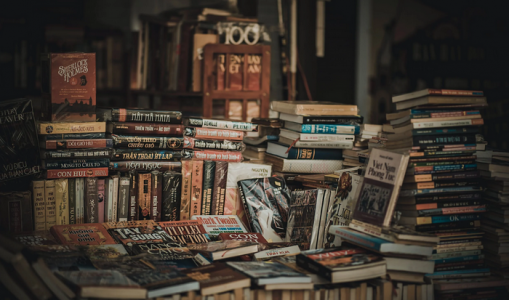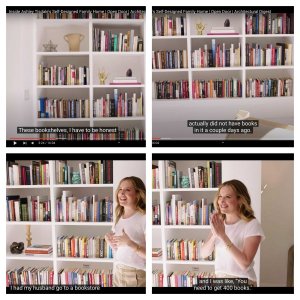Is your bookshelf full of unread books? Here's what it says about you!
Is your bookshelf full of unread books? Here's what it says about you!
You know the drill. You’re out to get some groceries or a cheeky coffee and snack. While waiting for your food, you can’t help but notice your local bookstore from across the restaurant and you sneak out. You know your spouse will probably scold you if you buy yet another new book since you have several of them unread at home.
You convince yourself that you WILL find time to actually read this one, but thoughts of the unfinished dishes and dirty countertops at home lurking at the back of your head say otherwise.
A-ha! You see it. You’ve seen on TV that your favourite author just released a new book and it’s glistening and sparkly behind the register’s counter. You approach the register and ask the cashier for the book behind her and she gladly rings it up for you. You can already feel your partner glaring at you, but decide to let it pass. When you get home, you comfortably perch your new purchase on your bookshelf then sit on the couch to watch TV and feel the pile of unread books staring daggers at you from your bookshelf.
This all too common phenomenon is called Tsundoku, which is a Japanese word that refers to the act of buying books without reading them. People usually commit the sin of Tsundoku for a variety of reasons. Some of the top perpetrators are those of us who LOVED reading books as children but somehow had their attention span turn for the worse as they grew older. Others could be those who treat buying books as some form of retail therapy, who find comfort in buying books. On the opposite end of things, however, exist those who buy books for their mere aesthetic appeal them, matching the colours and sizes with other elements in their household.
The Japanese word is made out of two parts: “tsun” and “doku.” The latter is used as a verb as in “to pile up” while the former originates from “tsumu” as in “reading.” So when put together, “tsundoku” has the meaning of buying reading material and having it pile up.
Throughout the pandemic, the act apparently became more common as a form of what we call “hoarding.” We all know that throughout the pandemic, people purposely hoarded a lot of things, from alcohol to face masks to toilet paper (sigh) under the impression that these goods would not be as accessible as they usually are due to the lockdown.
While people were within the comfort of their own homes, they got bored and this resulted in impulsively buying a variety of things to help keep their spirits up. The younger generations were crazy about gaming consoles, particularly Sony’s PS4 and the Nintendo Switch. Some people hoarded plants to fill their backyard. Some people decided to get pets despite being very against the idea prior to lockdown. And lastly, of course, people like us, decided to buy more books than we could read to appease our inner reader.
But don’t worry! Despite it sounding bad, according to the professor who actually coined the term in Japan, there actually isn’t any negative stigma surrounding it - or at least, he believes, there shouldn’t be. We think it boils down to being human, and with being human comes the perfectly normal and healthy tendency for us to prioritise our own mental well being.
While being sympathetic to tsundoku, the internet did express particular outrage for those (as mentioned earlier) on the far side of the spectrum who buy books simply to show off. One is American Actress Ashley Tisdale, who admitted to having her husband buy 400 books before a house tour.
‘These bookshelves, I have to be honest… actually did not have books in them a couple days ago,’ she said while laughing, ‘I had my husband go to a bookstore and I was like: ‘You need to get 400 books.’
‘Do people really buy books with no intention of reading them...for decor? I’m so confused right now,’ one commenter said, ‘rich people don’t deserve nice homes.’
Some of them, however, said that it was a relatively harmless act, pointing out that despite the books being bought for aesthetic purposes, it did at least help out writers and book publishers in terms of the commission that they would be getting for the sales.
What about you? Do you find yourself guilty of this unspoken crime? What do you think about people who buy books purely for aesthetic purposes? Let us know in the comments!
While you’re at it, add more to your backlog by watching this video for Top Ten Aussie Fiction Book Recommendations!
Last edited:










